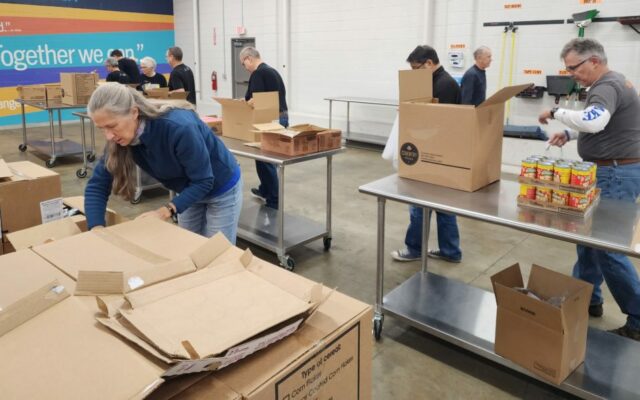Almost one-third of Iowa food bank’s stockpile is ‘rescued’ food

DES MOINES — A new study by the Iowa Food Bank Association finds more than 27-million pounds of food was “rescued” last year by the six Feeding America food banks that serve Iowa.
Annette Hacker, spokeswoman for the Des Moines-based Food Bank of Iowa, says an astounding amount of food is wasted and chucked into landfills daily, so they work with grocery and convenience stores, manufacturers, growers and restaurants to rescue that food and get it to people who need it.
“It might be a pasta manufacturer who says, ‘These pasta noodles are just an eighth of an inch shorter than we normally make to put on the shelf and sell, so we’re going to donate this pasta,’” Hacker says. “It might be a dairy that says, ‘This particular batch of cottage cheese had slightly less salt in it than meets our standards,’ but it’s still perfectly good.”
A report from the USDA says up to 40-percent of the U-S food supply is wasted every year, so Hacker says food banks rely on retail rescue to meet the growing, record need for food assistance.
“We have recently had pallet after pallet of Triscuits marked organic, but guess what? They weren’t organic,” Hacker says. “So that was a great volunteer project, to go through every Triscuit box and mark out the word ‘organic,’ still perfectly good, fresh crackers inside that box, but they were not able to be sold because they were not labeled correctly.”
Hacker says food banks strive to divert perfectly good food from landfills and get it onto dinner tables for Iowans who face food insecurity.
“Food Bank of Iowa distributes more than 22-and-a-half million pounds of food every year, so our portion, a little over seven-million pounds, about a third of what we’re distributing is food that has been rescued from retailers, manufacturers, grocery stores,” Hacker says. “It’s absolutely critical. Food rescue is the reason food banking began in the first place.”
Many Iowans will throw out food just because it’s past the “best by” date on the label, which Hacker says is something that’s largely misunderstood.
“There really are no such things as expiration dates, except for baby formula and baby food,” she says. “Other than that, the dates that you see on food are often either a ‘sell by,’ a ‘best by’, or a ‘use by’ date and those dates speak to optimal quality, not food safety.”
Hacker says food banks adhere to very strict guidelines for food handling, temperature and storage of rescued food.




